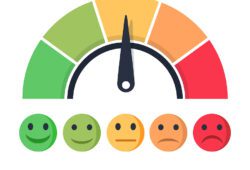TikTok, the popular short-video app, finds itself at the center of a political battle in the United States. Some lawmakers, mainly Republicans and a few Democrats, are seeking to ban TikTok in the country citing concerns over national security, user privacy, and foreign influence.
In summary, we can say there is one reason why TikTok is under the scrutiny of a ban in the United States: China. However, there are several implications and factors behind this discussion.
Here are 10 facts to understand what’s happening with this famous app in the United States.
In which countries has TikTok been banned?
Before delving into the U.S. situation, it’s crucial to understand the international precedent. India led the initiative by banning TikTok in 2020, thus removing one of the platform’s largest markets. The decision was made as part of a broader action against Chinese-owned apps, citing concerns over the secret transmission of user data to servers outside of India.
Following this line, other countries and government entities, such as the United Kingdom, Australia, Canada, the European Union’s executive arm, France, and the Parliament of New Zealand, have implemented similar restrictions, limiting the use of TikTok on official devices.
Even in the United States, there is already a precedent: on official devices of the U.S. government and more than 20 states, the use of TikTok is prohibited.
Why the pressure for a ban?
Congressional Republicans, along with some Democrats, argue that TikTok could be a threat to national security. Due to ByteDance’s Chinese ownership, they believe TikTok could be used to influence American public opinion or spy on U.S. citizens. They see the app as potential “Communist Party malware.”
TikTok’s leadership and supporters of the app vehemently oppose a ban, arguing it would violate TikTok users’ First Amendment rights, harm businesses, and silence the voices of millions of creators.
An anti-TikTok law
A bill requiring ByteDance to divest from TikTok or face a ban is being discussed in Congress. House Majority Leader Steve Scalise has indicated that a vote could occur this Wednesday.
The bill has found bipartisan support in Congress, with lawmakers emphasizing the need to protect national security without necessarily aiming to “ban” TikTok outright. Instead, the goal is to ensure the app is free from foreign control.
The legislation seeks to establish a framework whereby the U.S. president can order the divestiture of companies under foreign influence. This could involve selling the app to a U.S.-based entity, thereby alleviating concerns about foreign espionage and manipulation.
Senate Democrats and some civil liberties groups have expressed their opposition to the bill, proposing alternative measures that would address the risks posed by foreign-controlled apps. These proposals aim to enhance federal authorities’ ability to counteract the influence of such apps while preserving the principles of free expression.
The alternative to the ban
One of the options being considered is the sale of TikTok to a U.S. company; even Sam Altman, CEO of OpenAI, was mentioned as a potential buyer.
ByteDance has been in talks with the U.S. government to reach an agreement that could prevent a ban.
ALSO READ. When and Why is TikTok Banned in the US? This is What We Know
Who owns TikTok?
The company behind TikTok, ByteDance, was founded in 2012 by Chinese entrepreneur Zhang Yiming.
ByteDance is a technology company based in Beijing that has created a series of content platforms and social networks that have gained popularity both in China and internationally.
TikTok, known in China as Douyin, was launched internationally in 2017 and quickly became one of the most downloaded apps globally.
What is the U.S. concern with TikTok?
The main concern in the United States and other Western countries is that, due to Chinese laws, companies like ByteDance could be compelled to cooperate with the Chinese government in intelligence activities, potentially jeopardizing the security of foreign users’ data.
These concerns are exacerbated by accusations of censorship and content manipulation, as well as fear that the app could be used as a tool for political influence.
Specifically, the discussion about banning TikTok in the United States focuses on two main concerns:
the security of data and foreign influence. Critics argue that TikTok could be used to collect sensitive data from American citizens, posing a risk to national security.
the fear that the platform could be used to promote propaganda or disinformation on behalf of the Chinese government.
ByteDance
In response to these concerns, TikTok has attempted to distance itself from its Chinese parent company, implementing measures such as storing U.S. user data on servers located in the United States. However, these measures have not completely appeased the concerns of U.S. lawmakers and regulators.
What’s going to happen with TikTok?
The future of TikTok in the United States is still uncertain. Congress is debating whether to ban the app or regulate it more strictly. The final decision will have a significant impact on the app’s future and its millions of users in the country.
Tiktokers
Amid these legislative efforts, TikTok has launched a campaign to mobilize its user base against the bill, highlighting the potential impact on freedom of expression and livelihoods.
The company’s actions have sparked further debate over the need for the bill, with some viewing TikTok’s mobilization as evidence of the very concerns that motivated the legislation.
TikTok and the elections
The path forward for the bill remains uncertain, with strong support in the Republican-led House but a more contentious battle expected in the Democratic-led Senate. The political landscape is further complicated by differing views among the top presidential contenders for 2024, adding another layer of complexity to the discourse on TikTok’s future in the United States.
In conclusion, the fate of TikTok in the United States is a complex issue intertwined with national security concerns, digital expression rights, and geopolitical tensions between this country and China.










